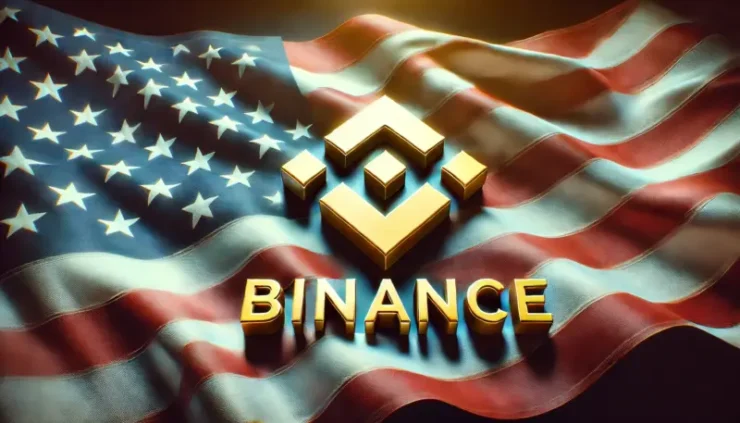Binance, the world’s largest cryptocurrency exchange, is at the center of growing speculation about a potential return to the U.S. market. The company largely withdrew from the United States in 2023 after pleading guilty to banking law violations and agreeing to a $4.3 billion settlement with the Department of Justice. With a friendlier regulatory climate under President Donald Trump, talks of a comeback are gaining momentum.
Steven McWhirter, Binance’s global policy lead, emphasized that no formal decision has been made.
“It’s far too early for any discussions of whether we should be in or out of the U.S.,”
McWhirter said. However, he acknowledged that the pace of policy changes in Washington has been significant.
Speculation intensified after a March 13 report by The Wall Street Journal revealed that members of Trump’s family have engaged in discussions with Binance executives about acquiring a stake in Binance’s U.S. subsidiary.
The report also stated that discussions included the possibility of a presidential pardon for Changpeng Zhao, Binance’s co-founder and former CEO, who served a four-month prison sentence after pleading guilty to U.S. banking law violations. Zhao denied the claims, stating on X,
“I have had no discussions of a Binance U.S. deal with… well, anyone.”
Since Trump took office, the federal approach to cryptocurrency has shifted considerably. The administration has abandoned regulatory actions targeting major crypto firms like Coinbase, Ripple, and Binance. The government has also established a Bitcoin strategic reserve and is pushing new legislation that could bring long-sought regulatory clarity to stablecoins.
McWhirter described the shift as a “game changer,” noting that the pace of change is “really impressive.” He added,
“Since Trump came in, there has been a very positive change in direction, and that’s had a trickle-down effect.”
Despite the changing environment, Binance has not confirmed plans for a U.S. headquarters.
“No, there’s nothing,” McWhirter said when asked about a potential base of operations. “But the business has been going through a very careful evaluation process.”
Trump’s Ties to Binance
Trump’s growing involvement in the cryptocurrency industry has raised concerns about potential conflicts of interest. His administration has signed multiple executive orders benefiting the crypto sector, and his family has been engaged in business dealings within the industry.
World Liberty Financial, a cryptocurrency venture backed by the Trump family, was launched in September, further intertwining Trump’s political and business interests.
The Wall Street Journal reported that Binance initiated talks with Trump’s allies last year, offering a business partnership to return to the U.S. market. The structure of a potential deal remains unclear, with possibilities ranging from a direct financial stake by the Trump family to an arrangement through World Liberty Financial.
A White House official denied that top Trump adviser Steve Witkoff was involved in negotiations, but sources familiar with the matter suggested otherwise.
Despite shifting regulations, Binance faces hurdles in reestablishing itself in the U.S. The exchange, which processes roughly $20 billion in daily trading volume, saw its American subsidiary’s market share collapse from 27% to just over 1% following regulatory crackdowns.
The U.S. Securities and Exchange Commission and Department of Justice have scrutinized Binance’s past operations, alleging that the company allowed transactions linked to sanctioned groups and encouraged U.S. users to bypass financial regulations.
Meanwhile, Zhao’s continued role as Binance’s largest shareholder presents another challenge. Regulatory authorities in the European Union prohibit firms with shareholders convicted of financial crimes from obtaining a crypto regulatory license. A presidential pardon could open the door for Binance to resume operations both in the U.S. and abroad.
Reports suggest that Binance executives have considered a legal strategy modelled after crypto entrepreneur Justin Sun, who invested $30 million in World Liberty Financial while facing SEC charges. The SEC later paused its fraud lawsuit against Sun, fueling speculation that a financial contribution to Trump’s venture could help Binance secure similar leniency.
The administration’s support for Binance aligns with Trump’s broader embrace of cryptocurrency, which critics have described as a significant departure from traditional financial oversight. While no agreement has been reached, sources indicate that discussions between Binance and Trump’s allies are ongoing.
A pardon for Zhao could reshape the company’s global standing and potentially clear the way for Binance to merge its U.S. subsidiary with its international operations. These talks could determine whether Binance reclaims its foothold in the American crypto market.





